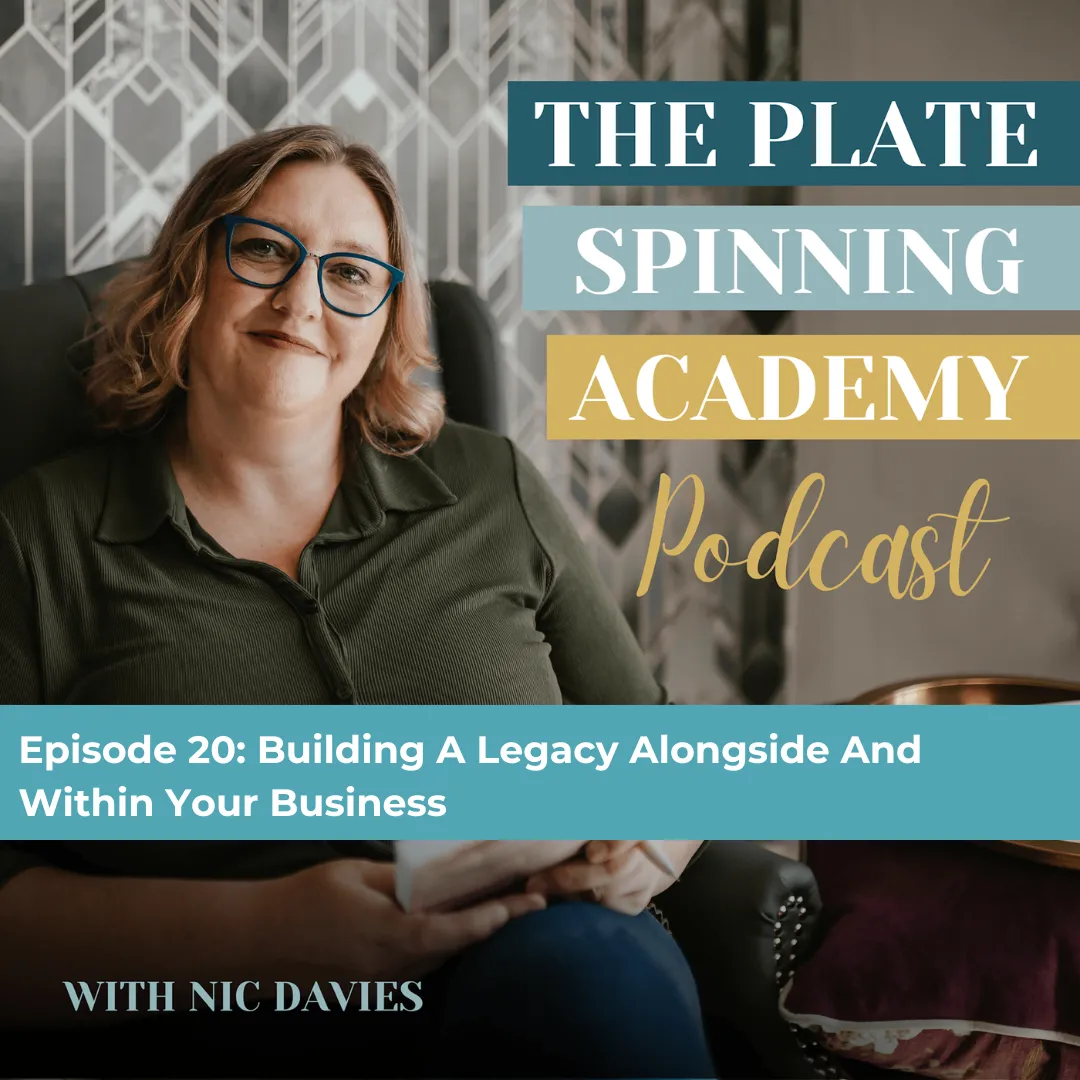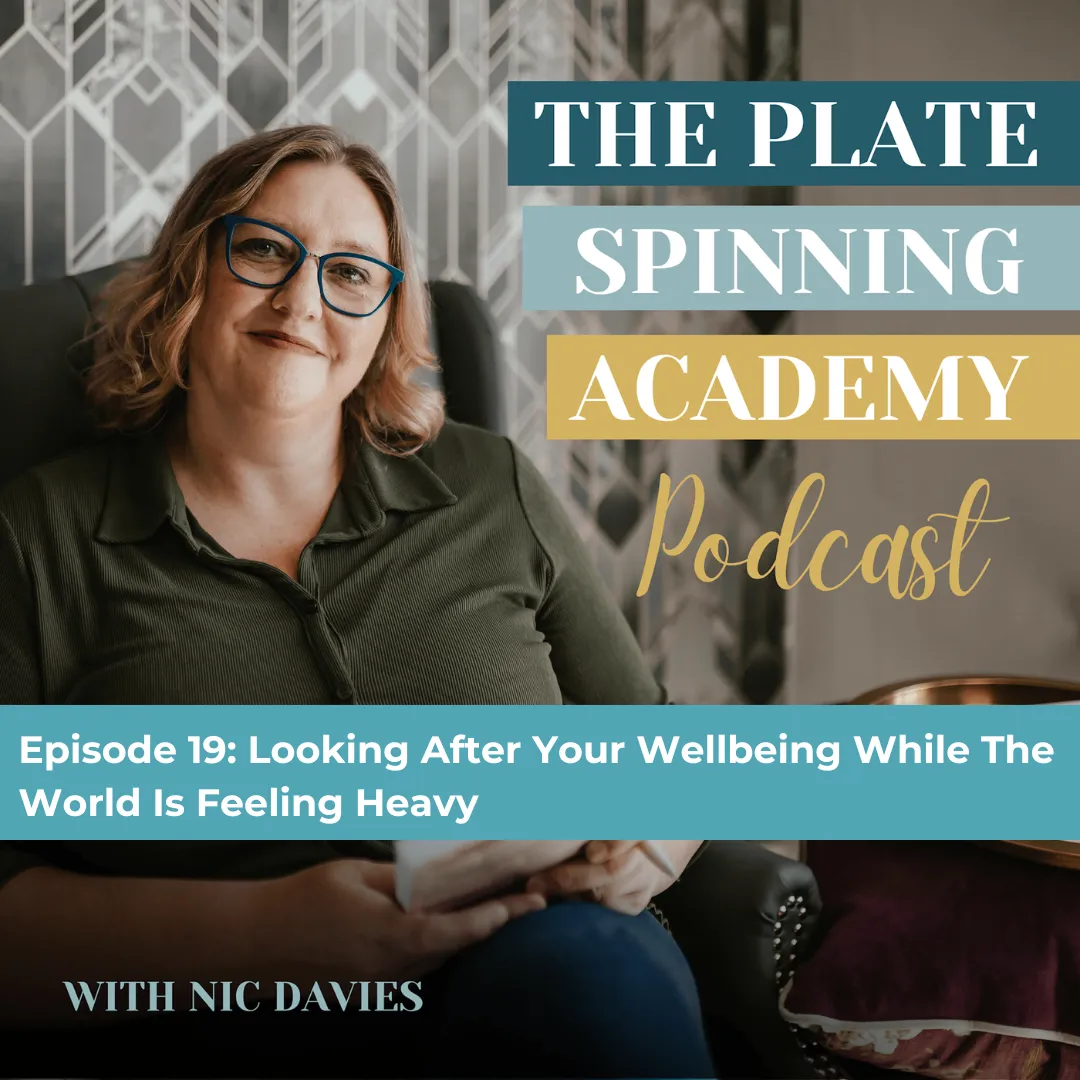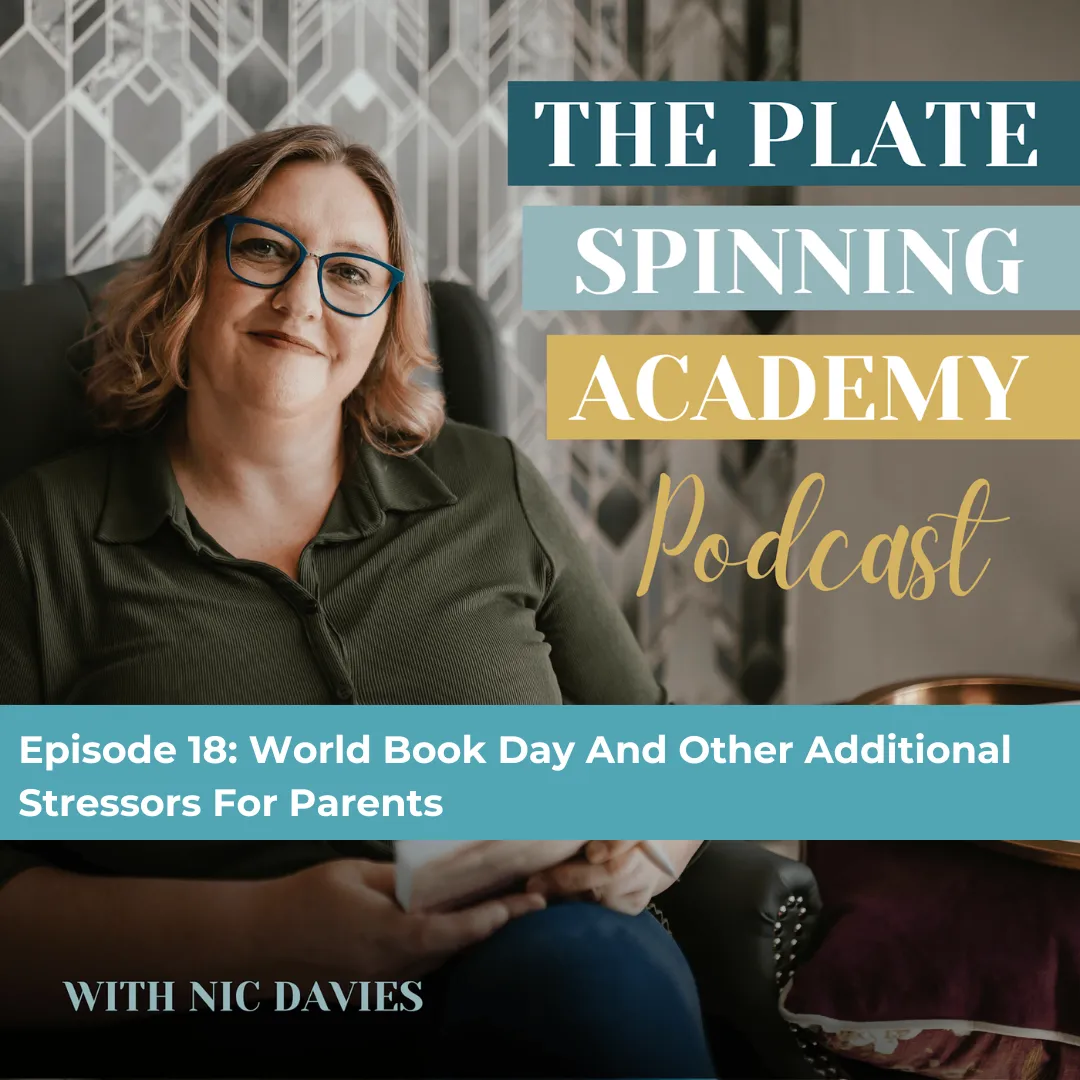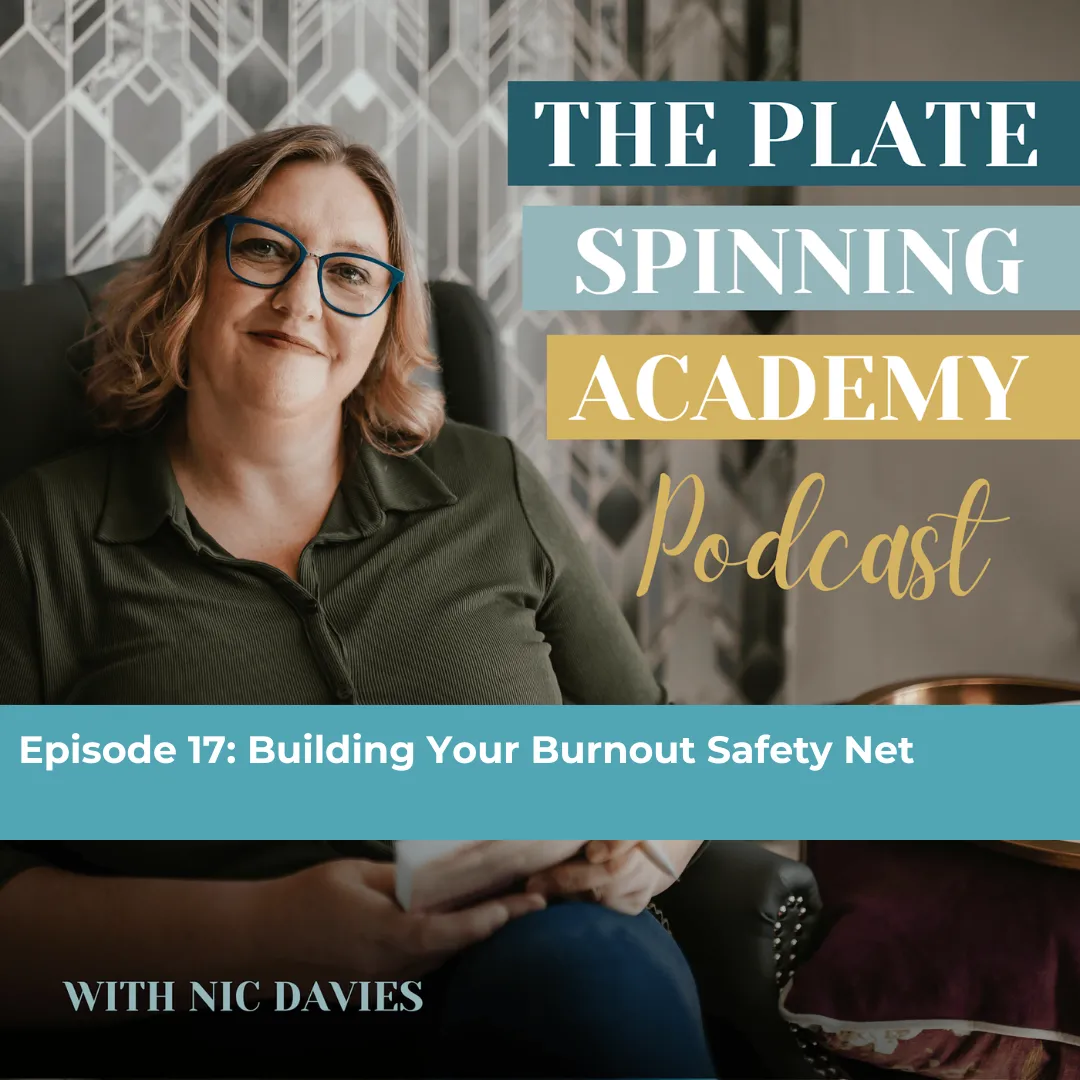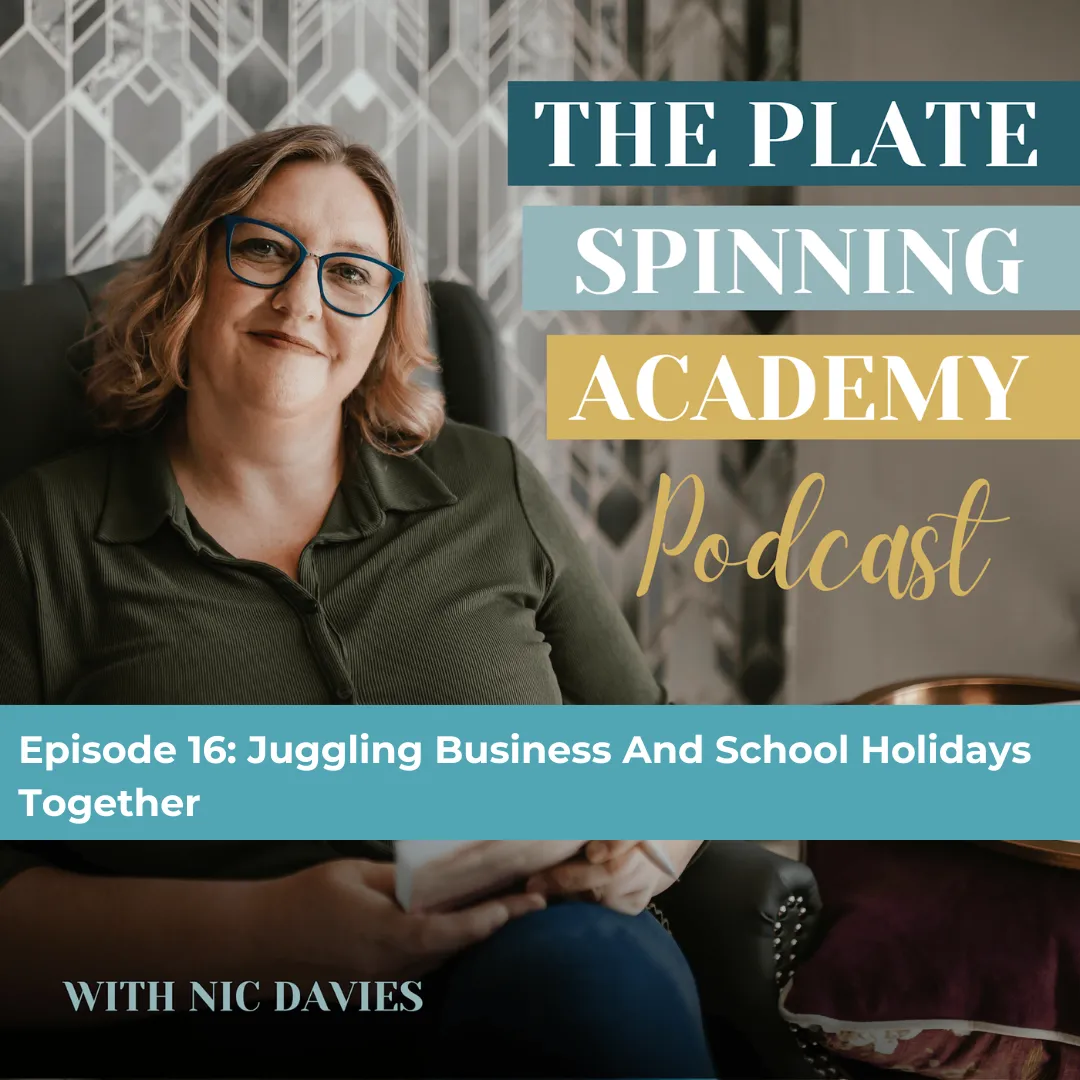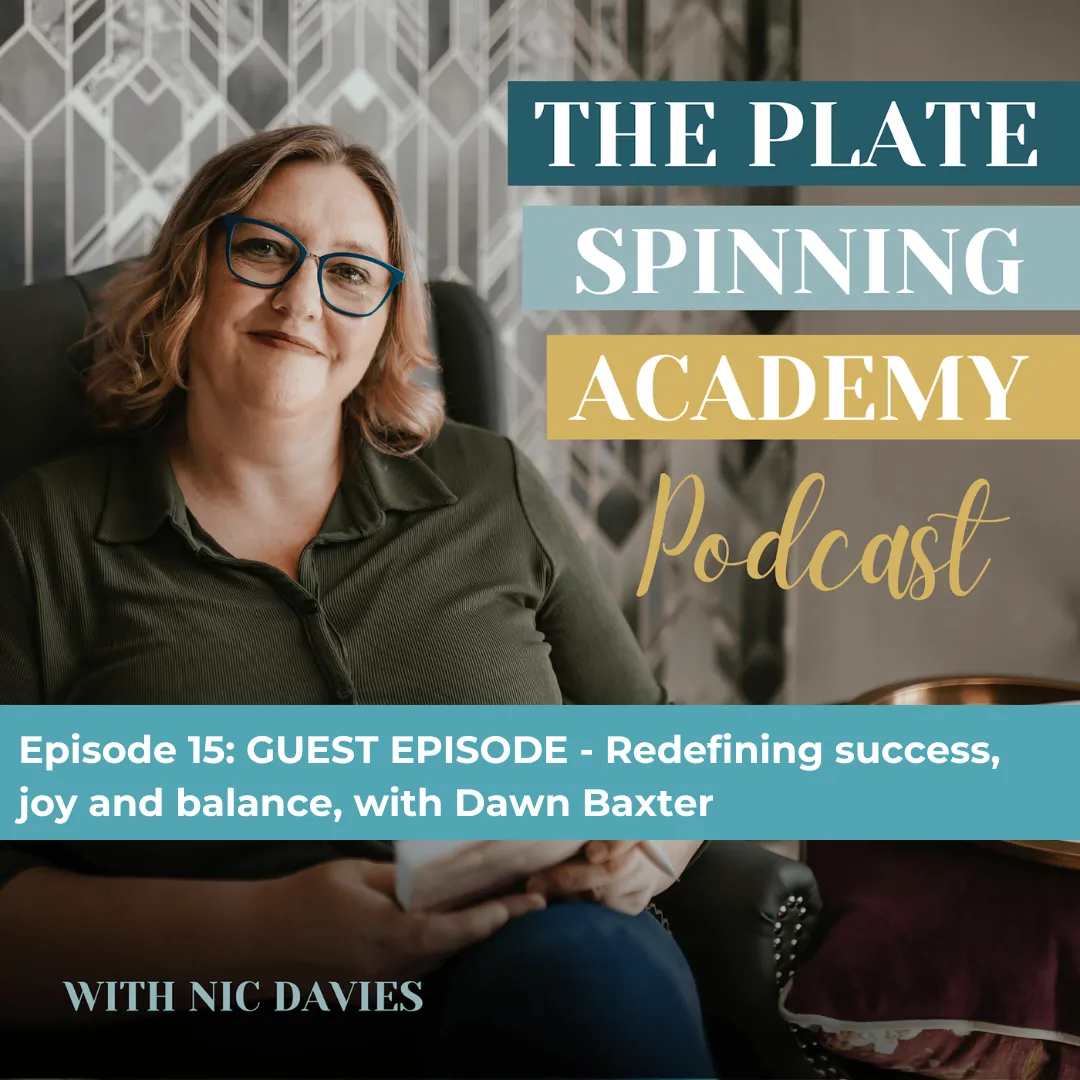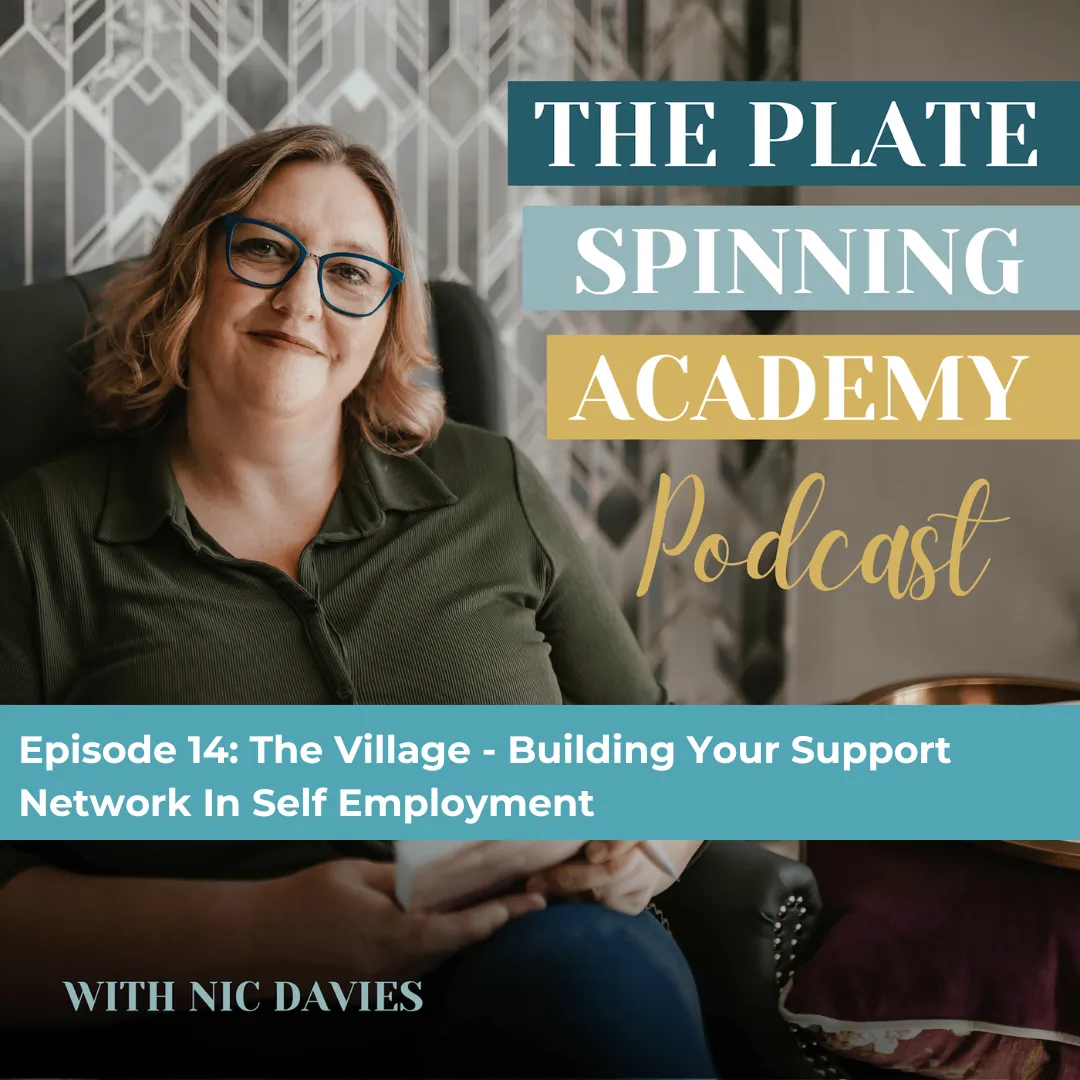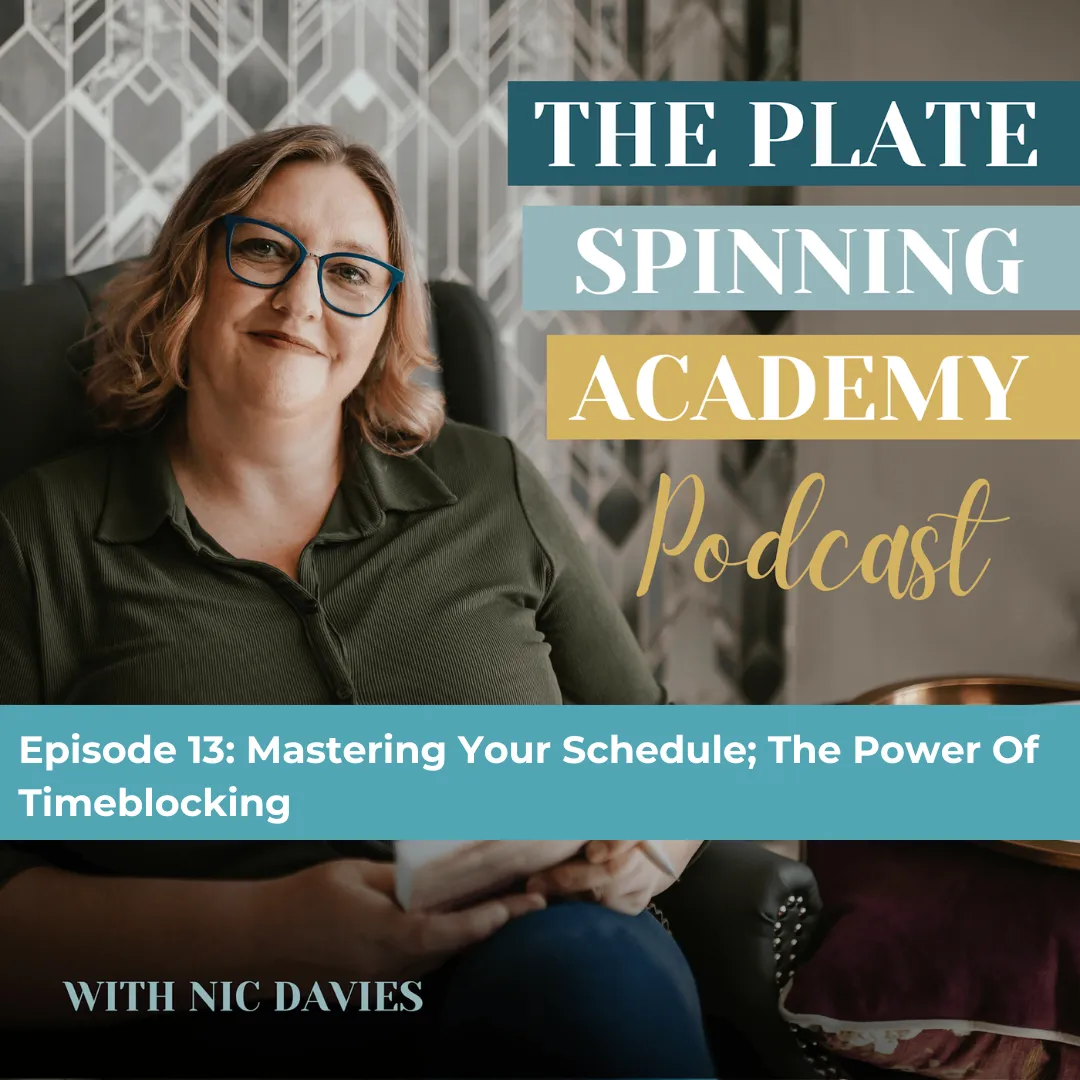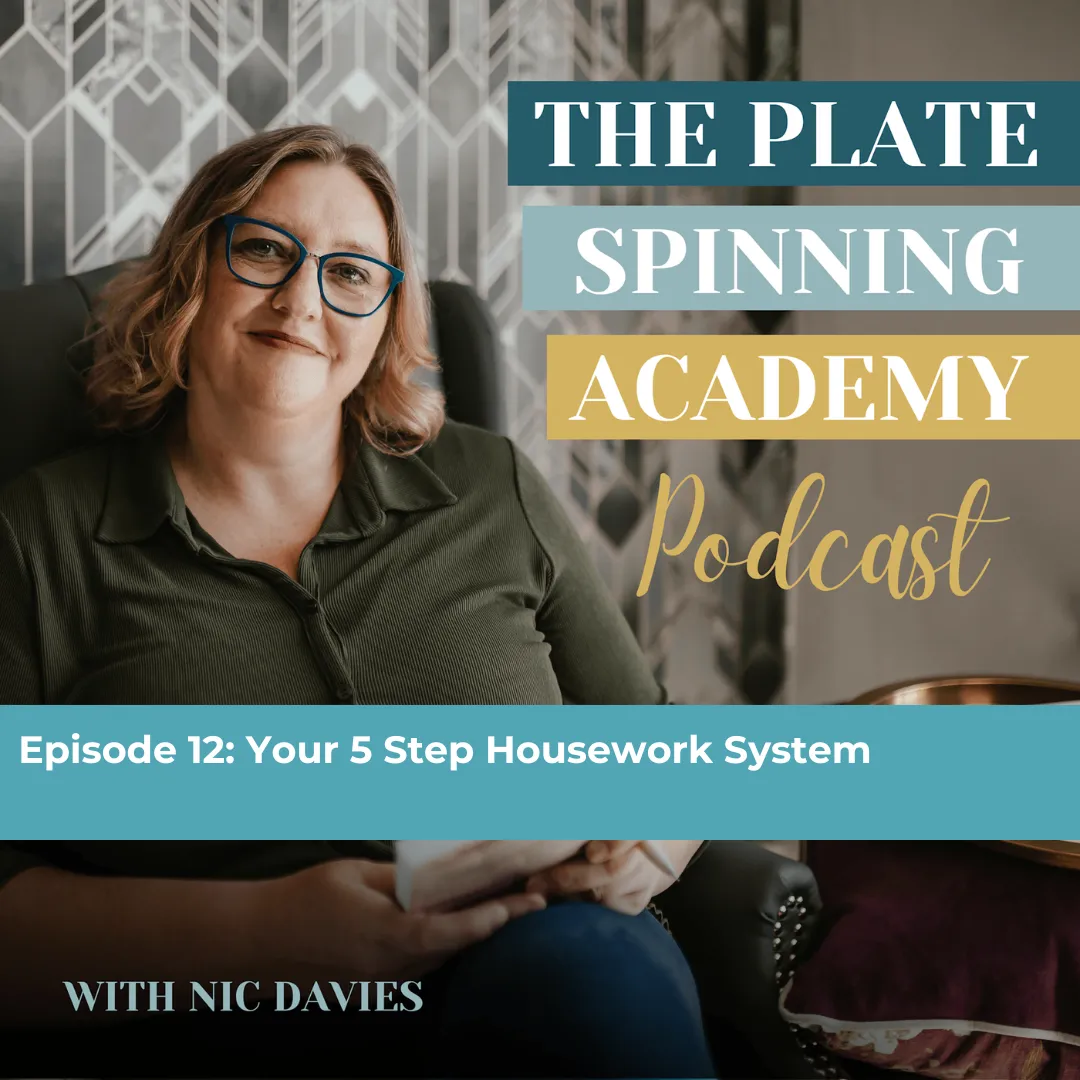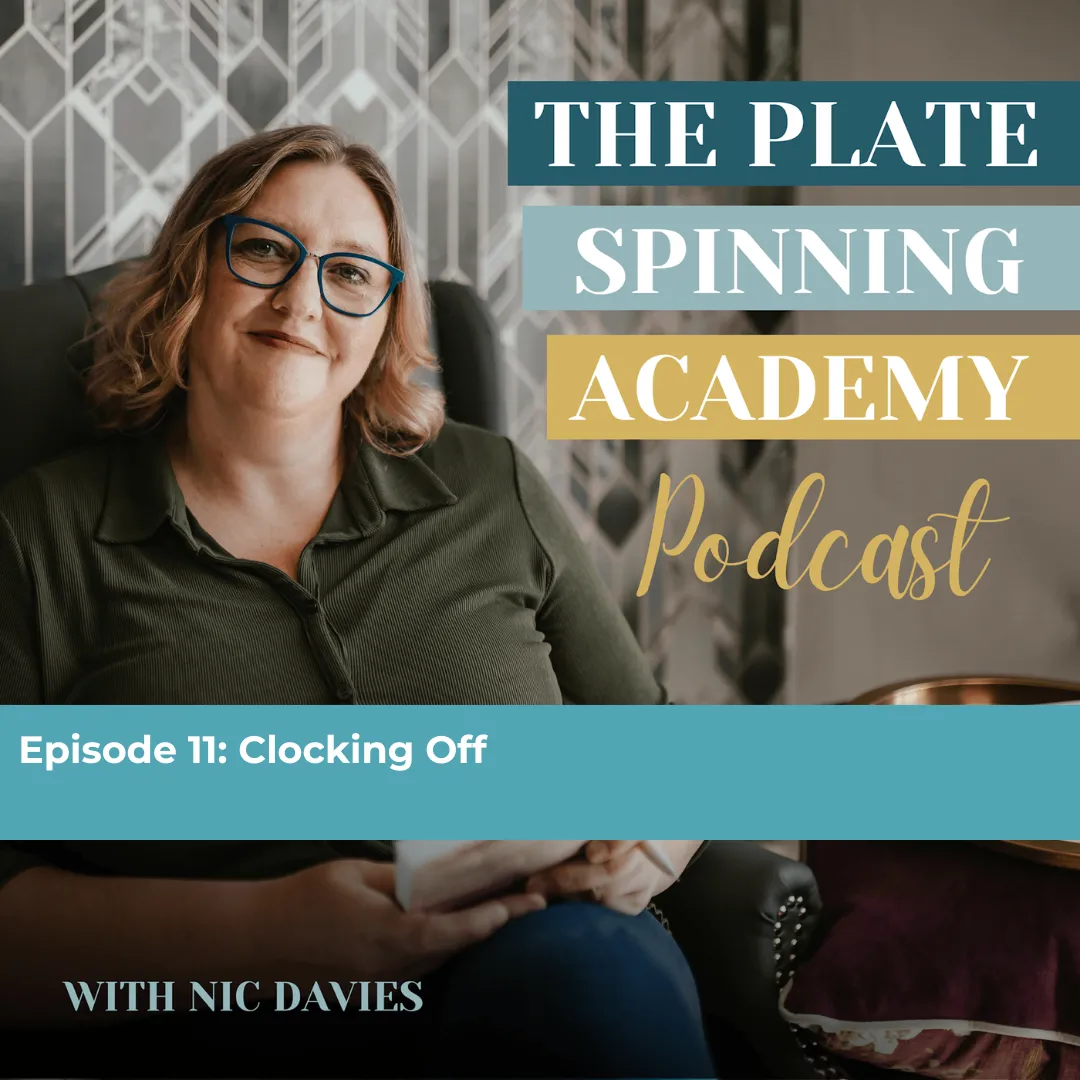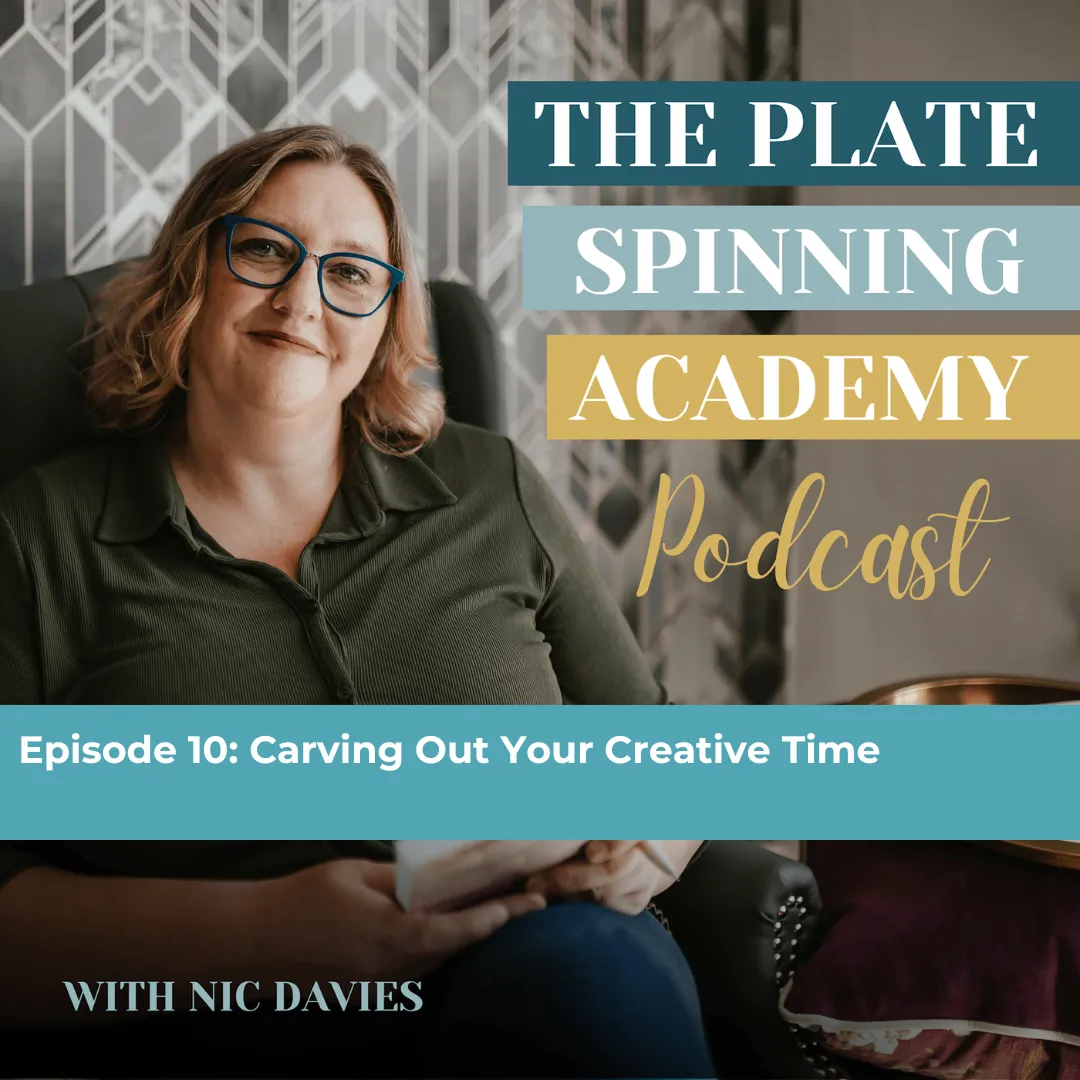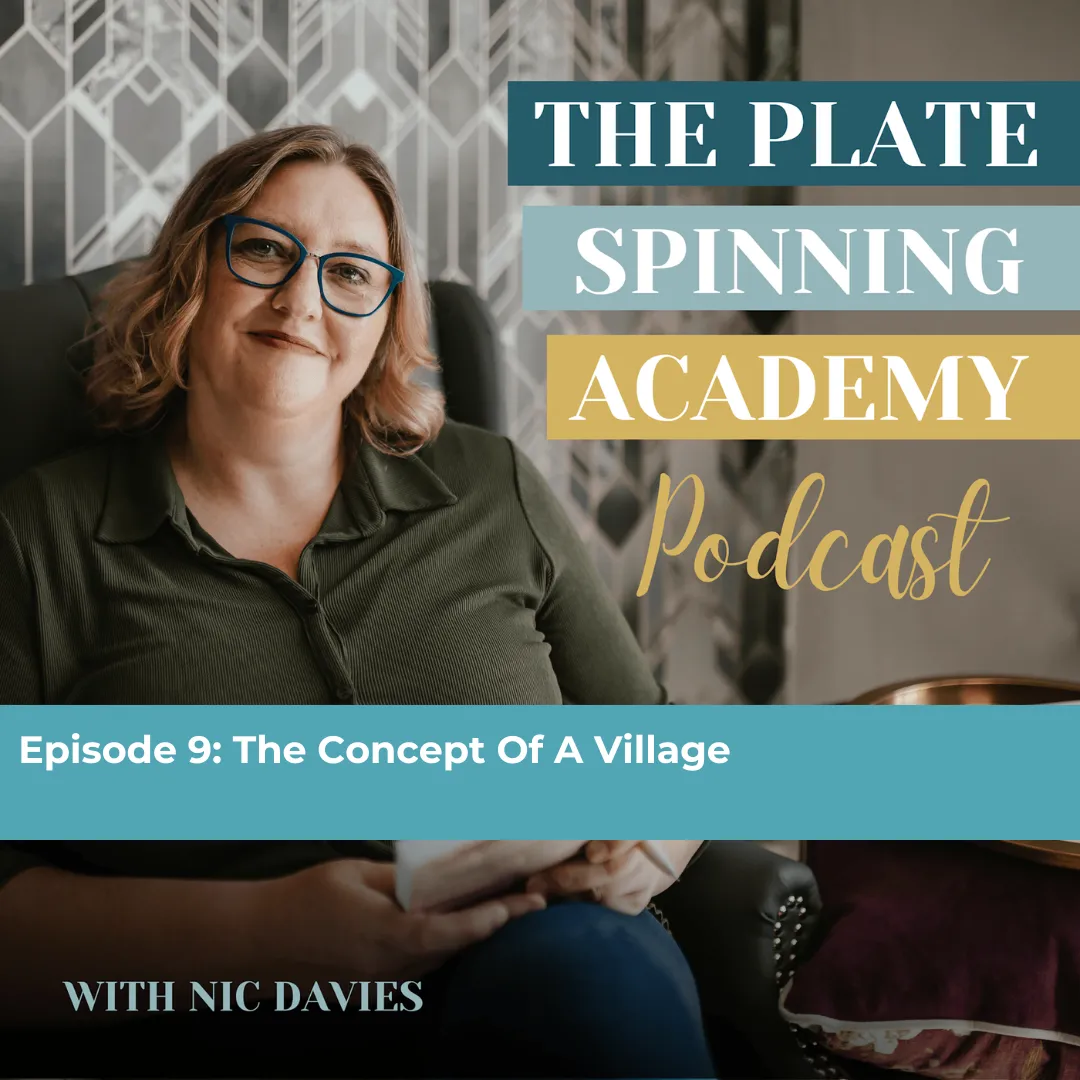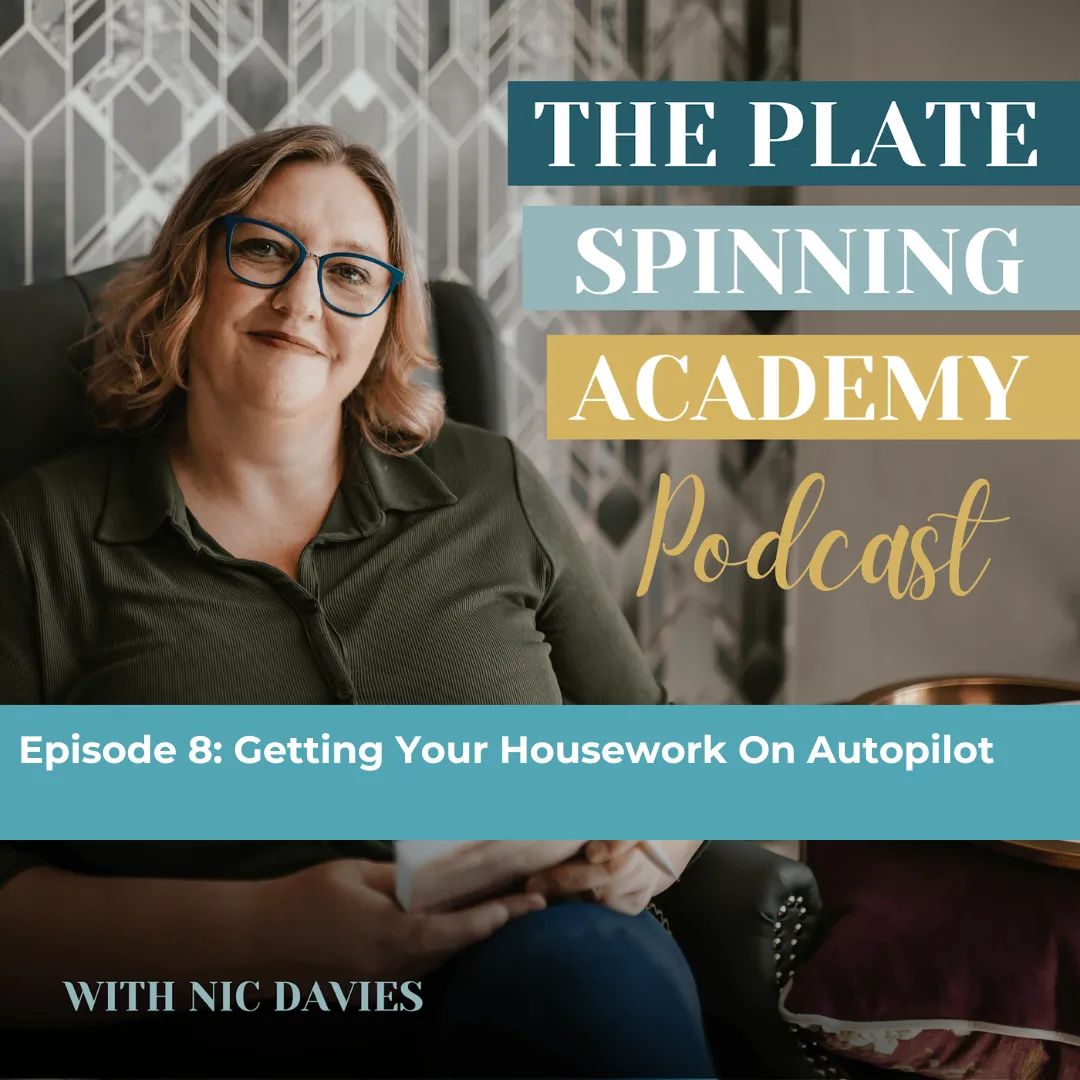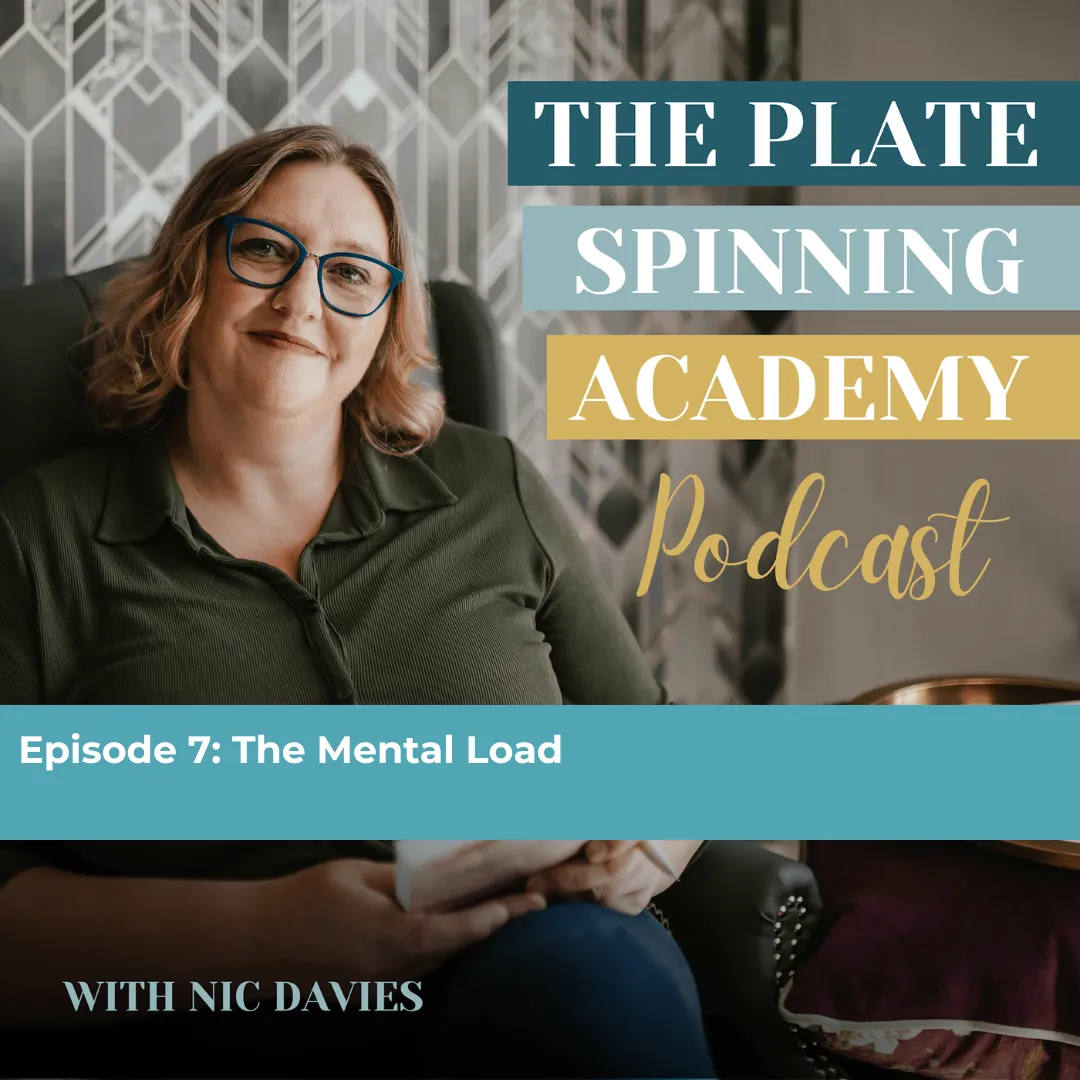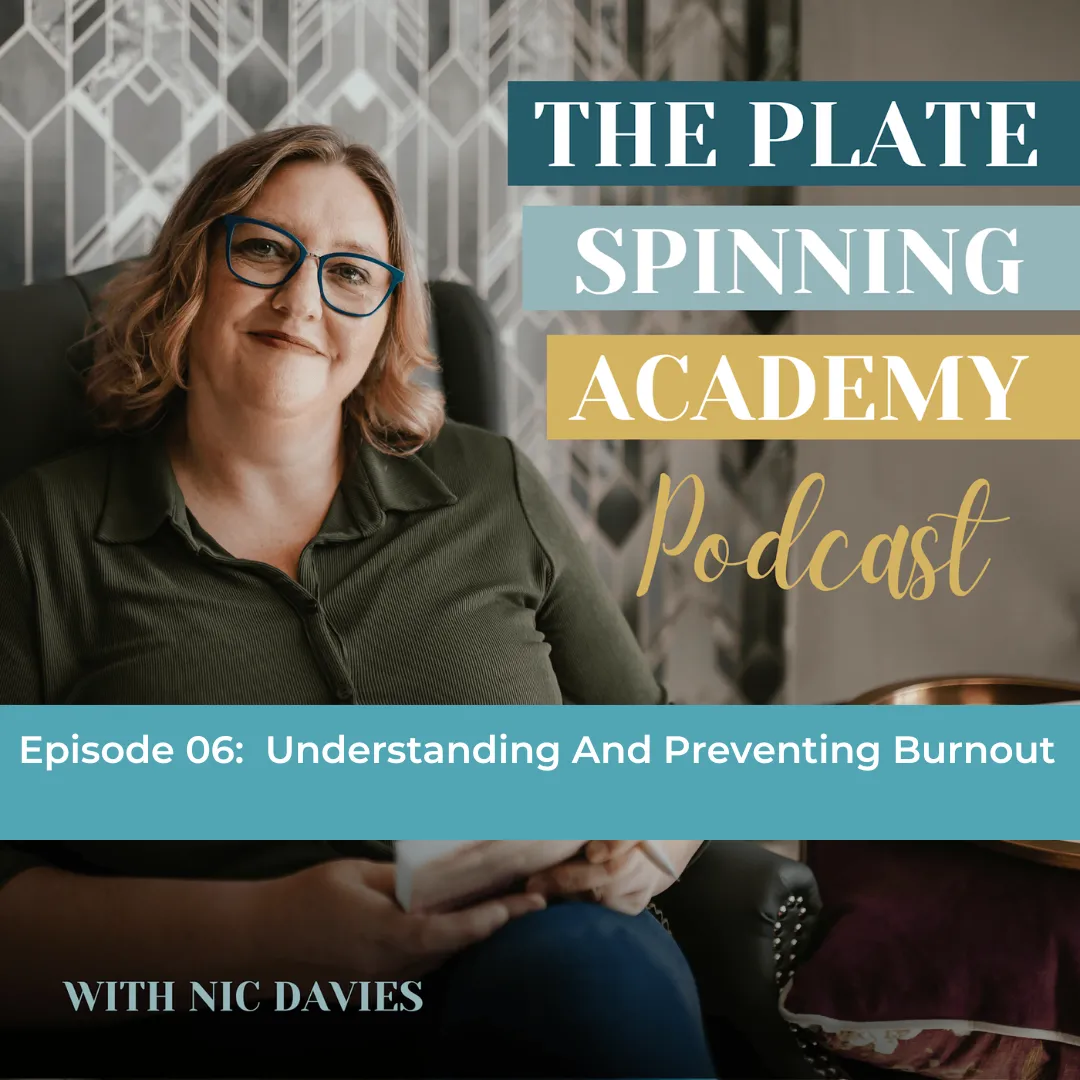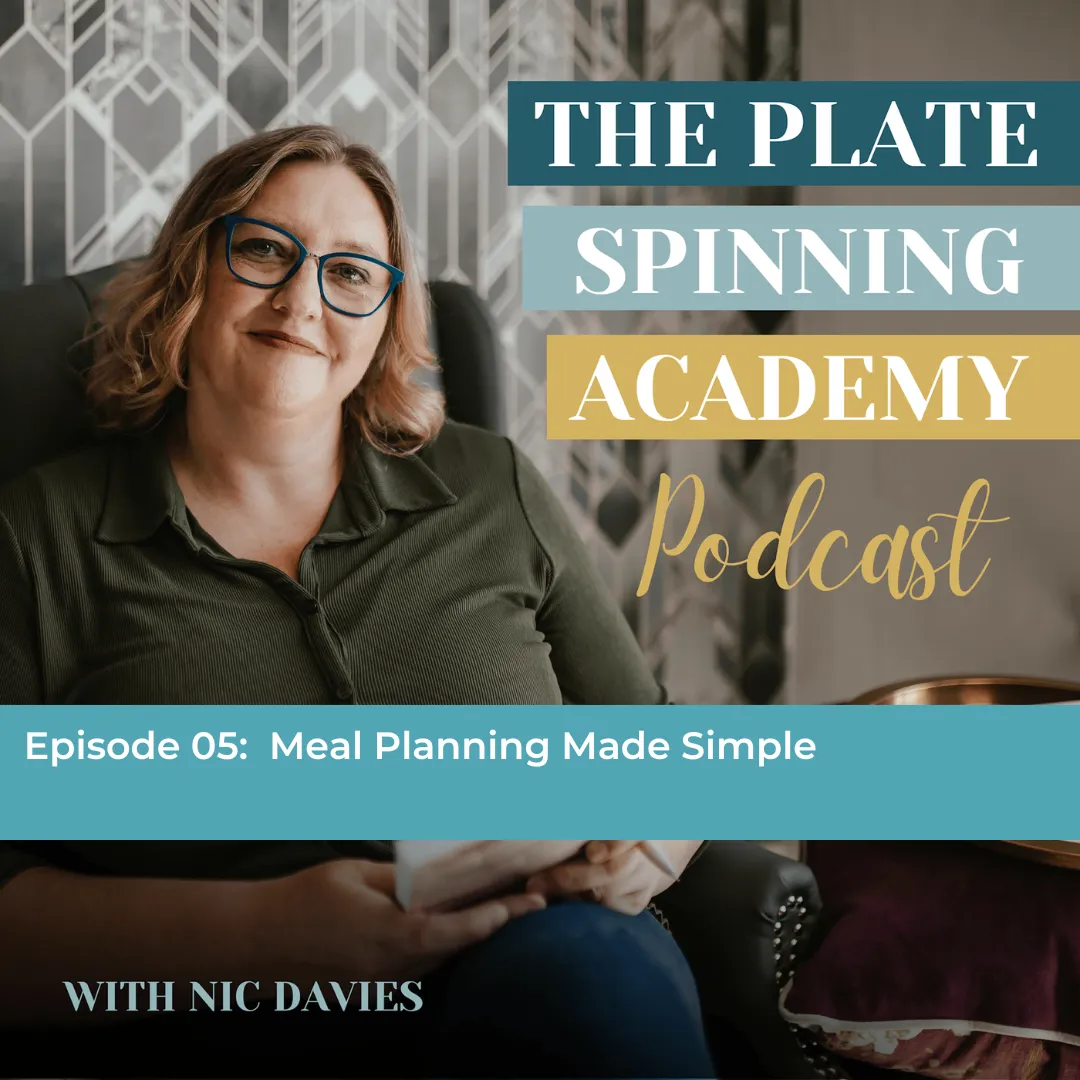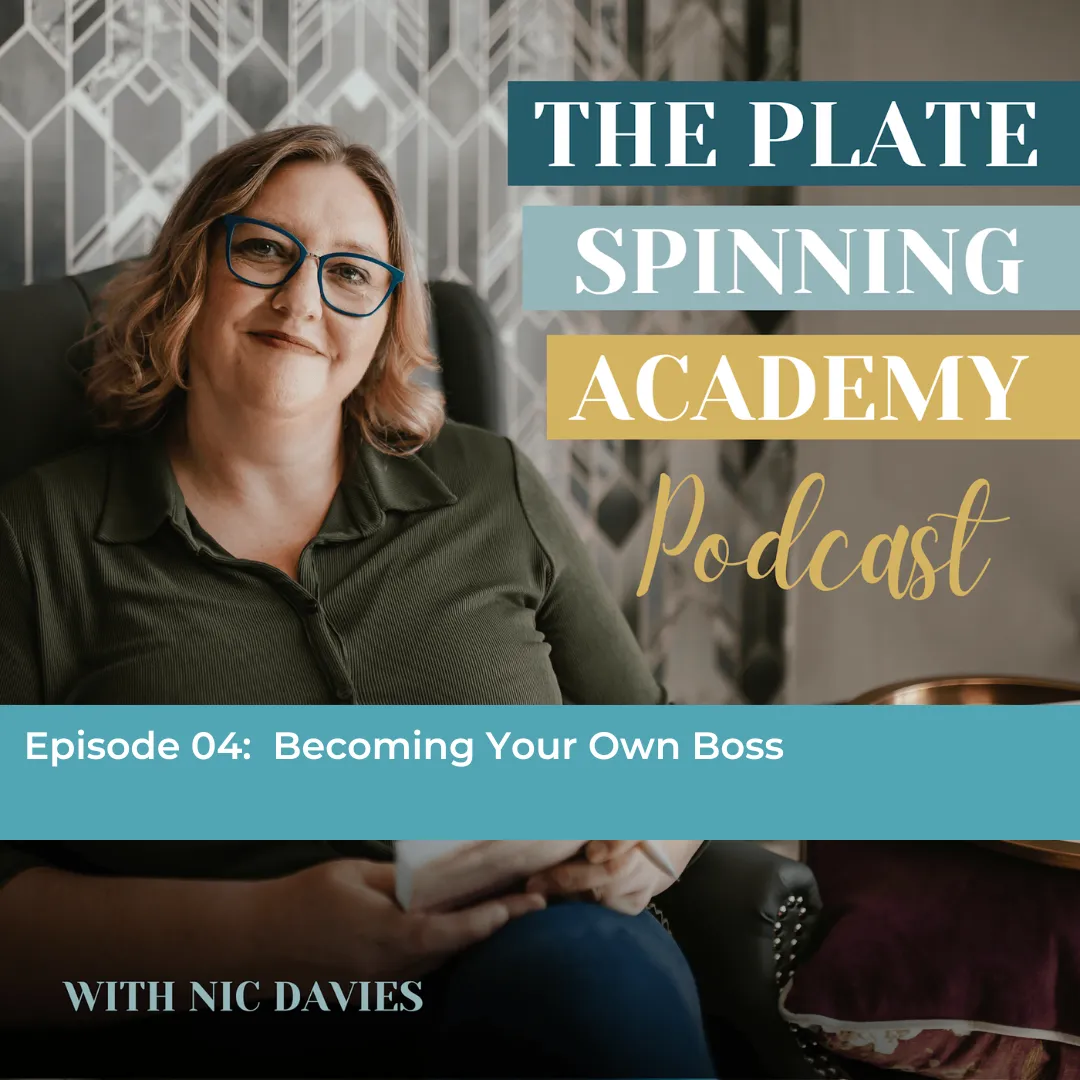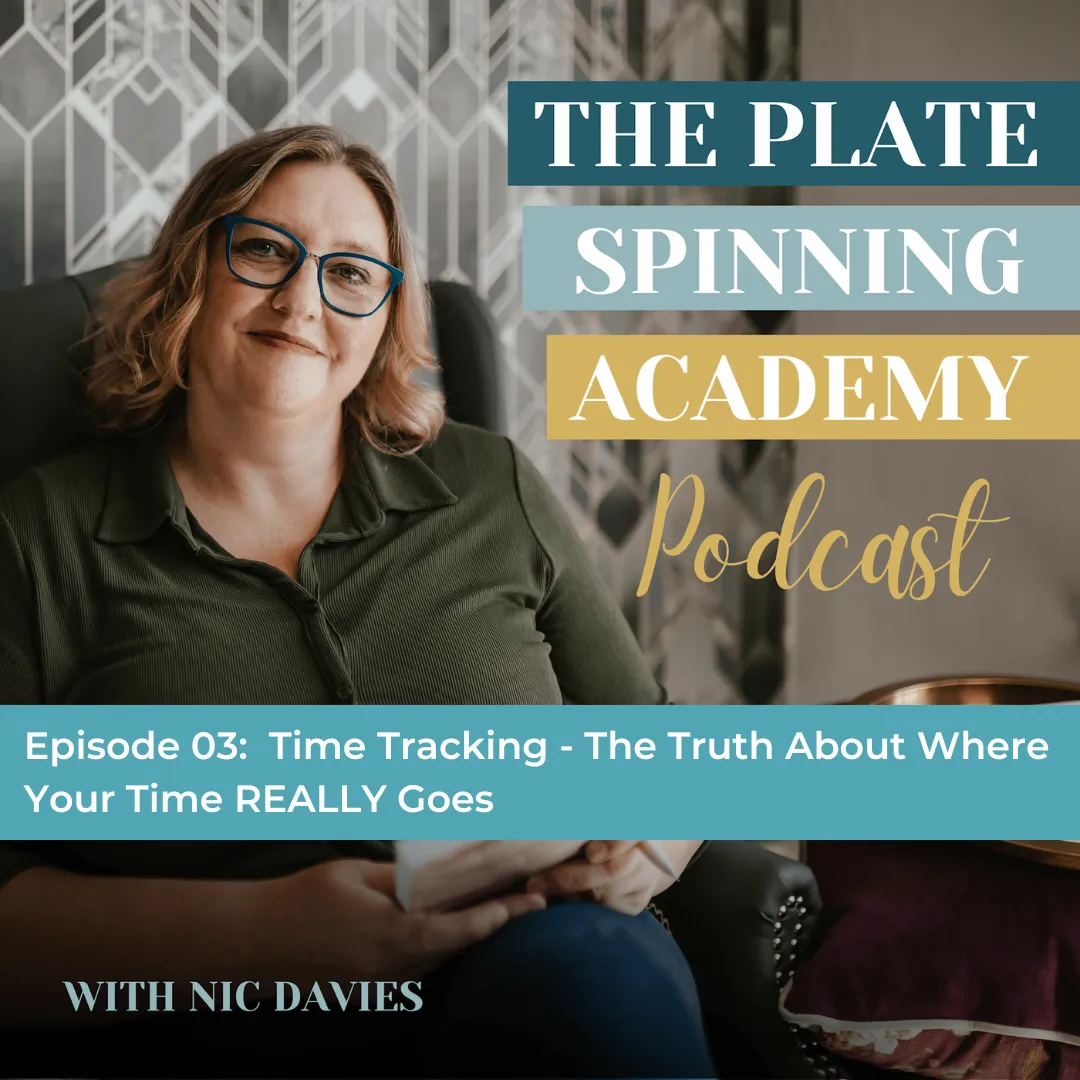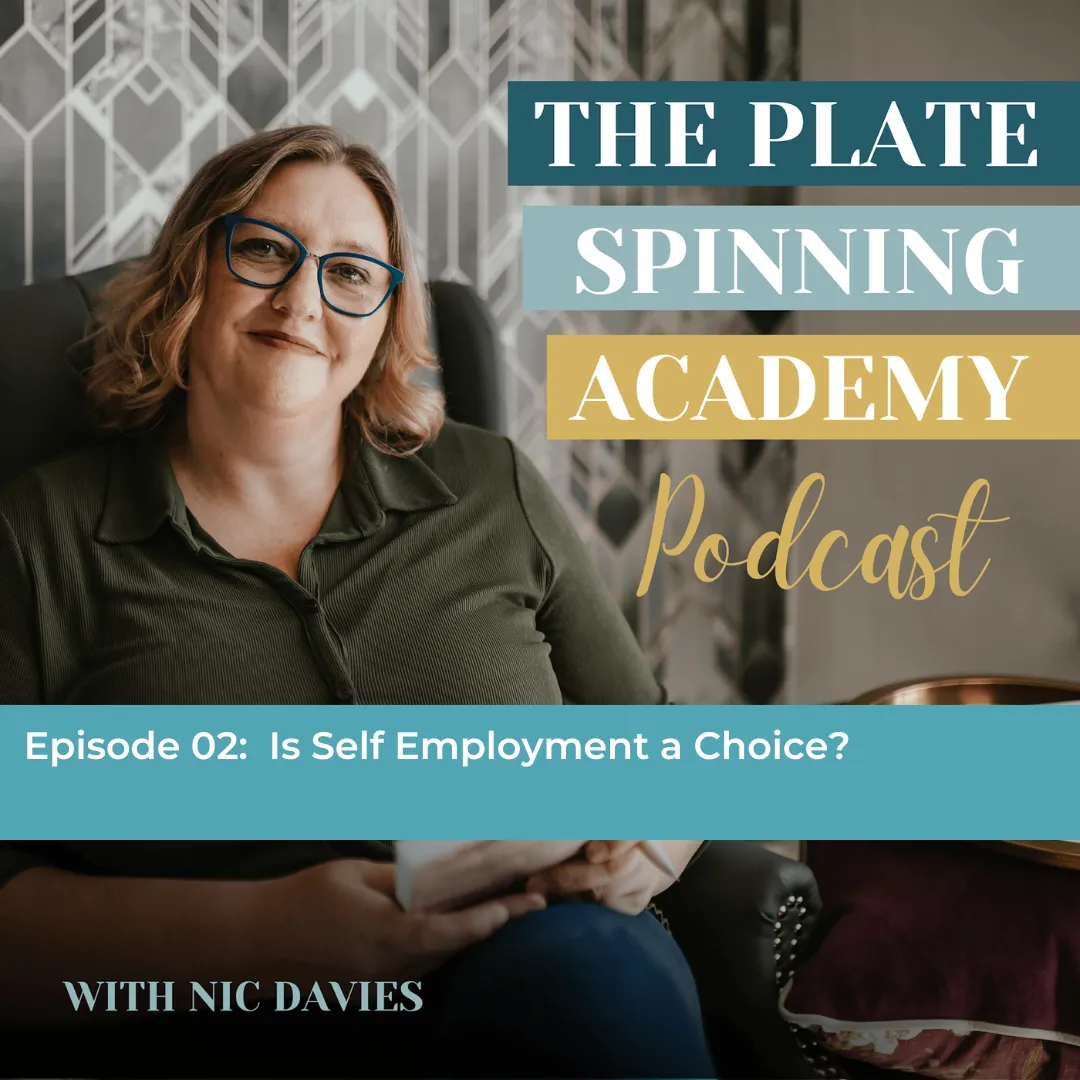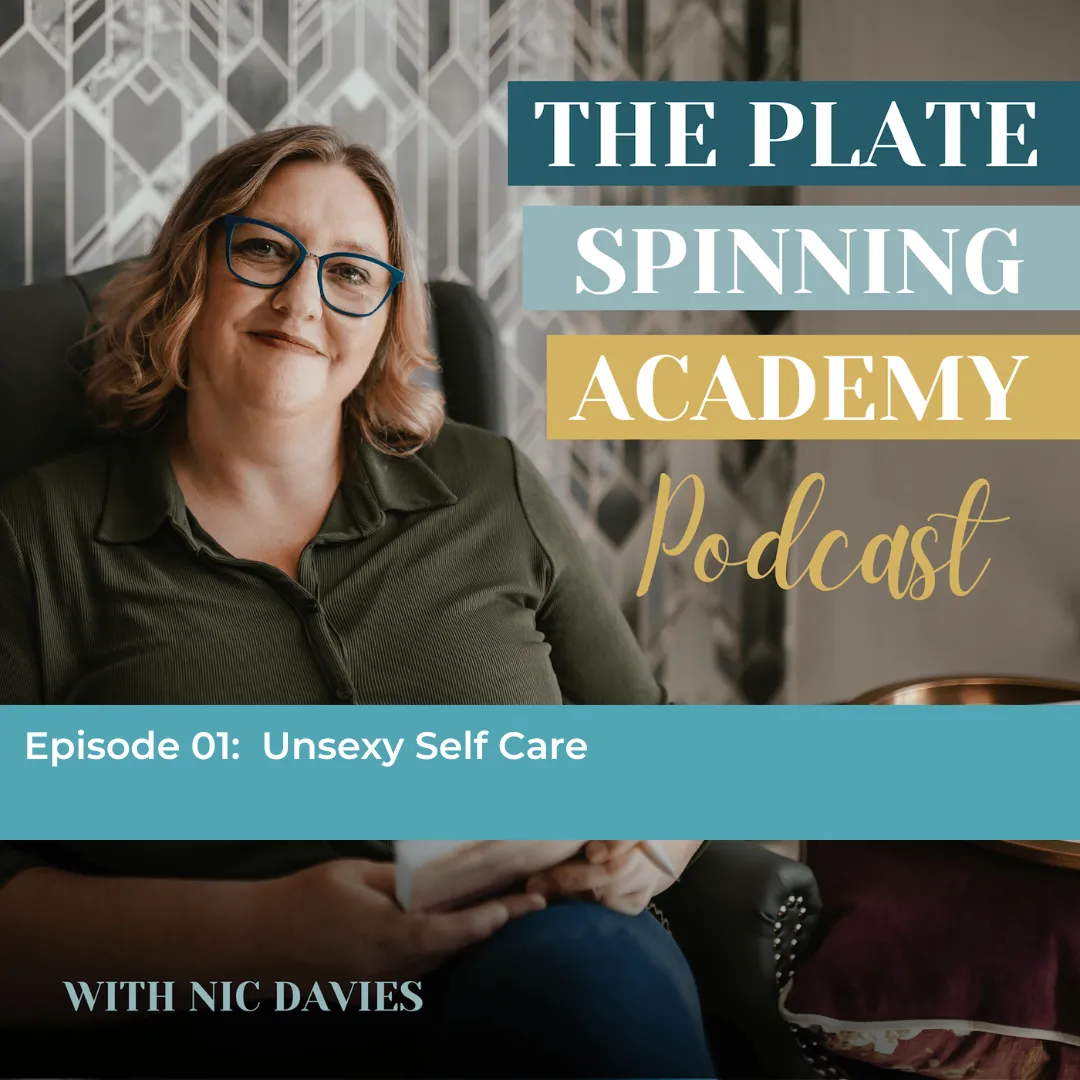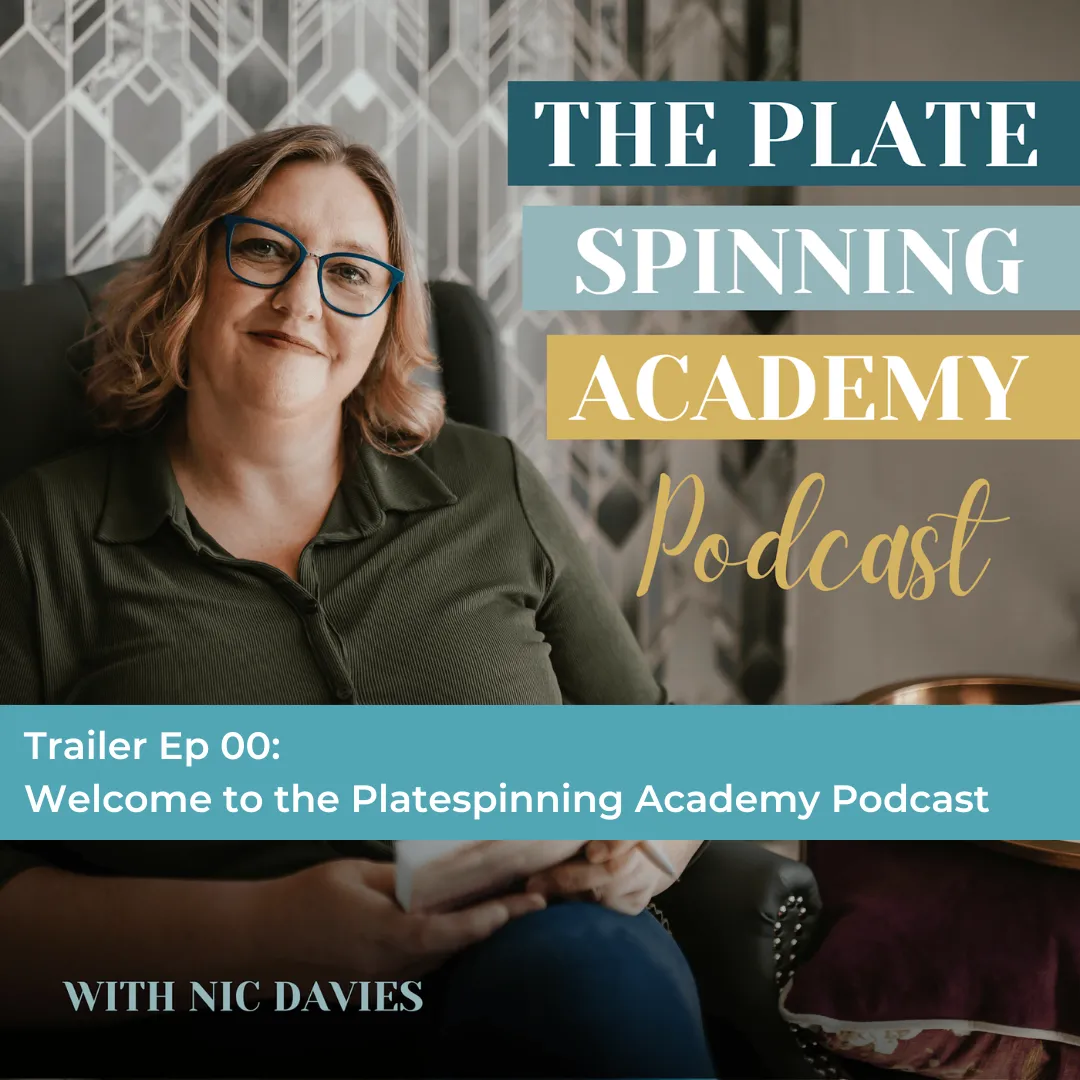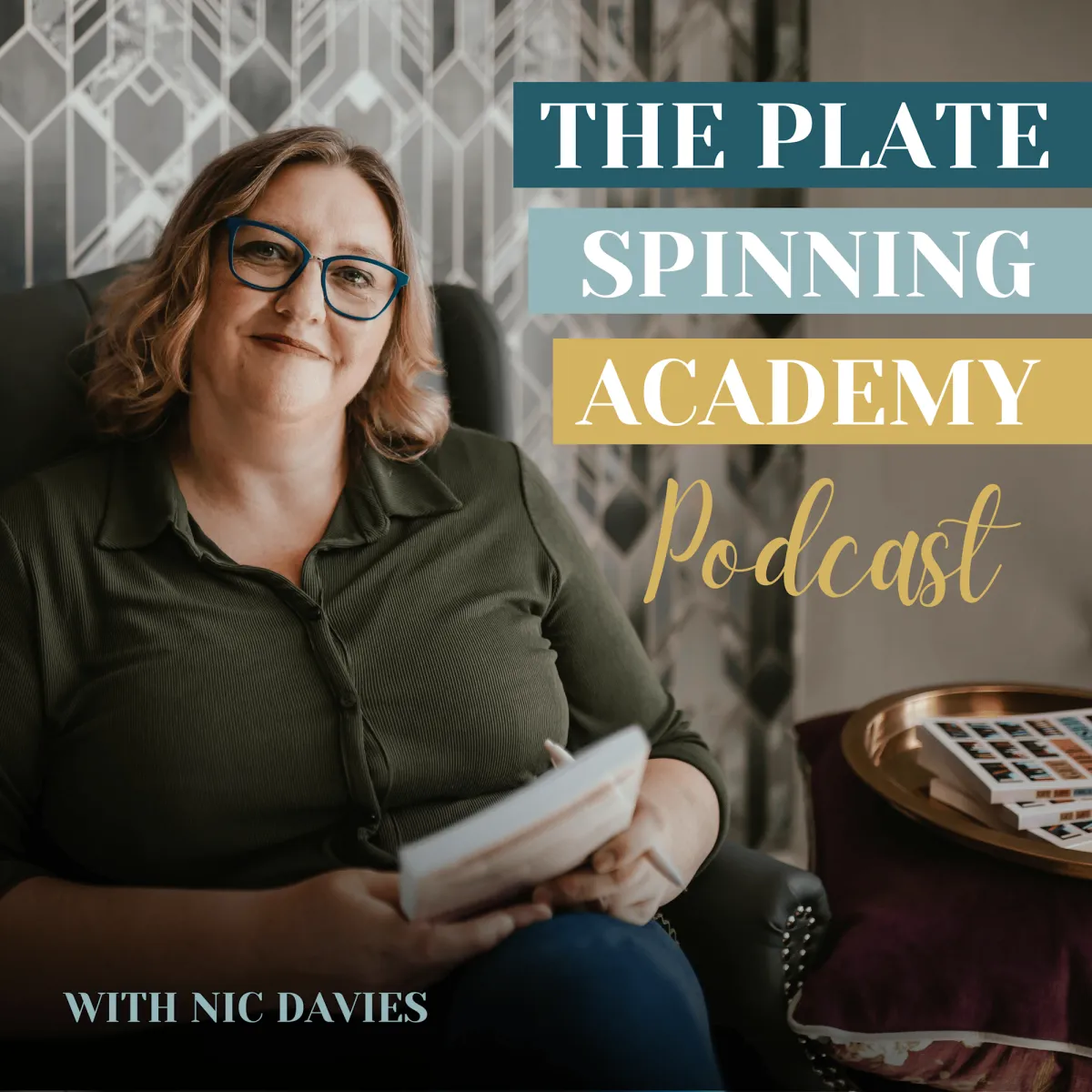
MY SHINY NEW PODCAST HAS LAUNCHED!
The Platespinning Academy Podcast
For real-life insights, practical tips, and motivation to help you work out which plates you have to keep spinning, and which ones you can allow to fall to the floor.
I'll dive into the practicalities on the topics of:
- Organisation and rotas
- Goal setting and accountability
- Systems, strategies and motivation
- The all-important self-care
Whether you're a business owner juggling home and work, or just feeling overwhelmed by life's demands, my podcast is packed with relatable stories, actionable advice, and plenty of encouragement to help you find your perfect work/life balance and blend.
Many people have an overwhelming desire to contribute and make the world a better place, and some choose to do that work by building a business that supports that purpose. Building a legacy is more than just running a business however. Whilst we still need to make enough money to live off, building a legacy through business is so much more than just an income. It becomes a way of life and is interwoven into everything you do.
One of the ways to help commit to your legacy and to also let others know what you are doing is by creating a mission statement for your business. This helps to clarify your passion, and also helps you to stay focused for the times when business and life can become difficult, and you wonder whether you’re doing the right thing. Or for when you have difficult decisions to make, you can refer to your mission statement to keep you on track.
Whilst creating a legacy through business takes a huge commitment, it is also an extremely rewarding activity. Being able to help and influence others in a truly positive way is something you cannot put a monetary value on. But being able to run a profitable business whilst also building your legacy in and around that work is a highly coveted sweet spot that many business owners strive for.
Managing and prioritising our own wellbeing whilst already feeling overwhelmed and at capacity can be a tough one to manage alongside our general day to day stresses. Add in the current weight of the world on our shoulders which is unbearably heavy for many people right now, and it can feel an almost impossible task.
With our own personal wellbeing ultimately being OUR responsibility and no one else’s, it’s up to us to put boundaries in place so we don’t feel overwhelmed with world crises, political events, and various breaking news stories that are designed for maximum shock impact. Having found myself swept up in some of this recently, I’ve seen how easy these scroll holes can be to fall in to. And then when you’ve finally pulled yourself away from doomscrolling, you’re left with a heavy feeling of helplessness, overwhelm and impending doom.
I talk a bit about stealing snippets of time from your current busy routine in order to build a better future, and how I manage to feel accomplished and that I’m working towards something positive, whilst also acknowledging life doesn’t feel great right now. It can feel like psychological warfare at times, and our personal resilience to this is something we all need to build up and reinforce, as I doubt this global situation is going to suddenly go away any time soon.
With annual World Book Day celebrations upon us again, many schools will be participating in one way or another. The pressure for kids to dress up can often be too much for already overwhelmed parents and caregivers, and if we don’t make it happen we may be left with feelings of guilt, and feel like we’re failing for not making more of an effort.
Having raised my bio kids during the 1990’s and 2000’s, comparing the pace of parenting then to more recently when I’ve raised my step-children, the difference is overwhelming. I used to have time, energy and headspace to fully immerse myself in the enjoyment of making costumes for the kids, and unfortunately more recently it has become all but impossible to keep up with those same expectations.
With the pace of life we live right now constantly gaining traction and speed, is it any wonder we are too stressed to create and make with/for our children? Spending money on a ready-made costume isn’t quite what World Book Day was supposed to be about – but what’s the alternative? I talk about the fact we chose to step out of that particular pressure, and also discuss other aspects of extra-curricular stress for both children and parents/carers alike.
Having to ringfence any time we want to spend slowing down the pace a little, means it doesn’t seem to happen naturally any more. Because we have to make an extra effort to protect this time, activities such as making costumes for themed days like World Book Day can fall by the wayside because they’re simply not a priority if we’re living in constant survival mode. It’s a kicker. Life shouldn’t be like this. But here we are. This is a frank discussion on the comparisons of 1990’s parenting compared to the last few years. I find myself in a privileged position to have done both – and maybe that’s why I find it so unjust that we can’t just press pause so easily now.
Many Entrepreneurs find themselves more prone to burnout than the average person. There is always work to do, and being natural high achievers, we always want to do our best and succeed. But at what cost to our physical, mental and emotional health?
Some Neurodiverse traits can also bring with them unhealthy patterns of boom and bust when it comes to productivity, accomplishment, and pacing (or lack of). The constant chase for the dopamine hit means that there is always just a bit more work to be done, or there's always an extra goal to hit. Whatever work you do, it can feel like it's never enough. This constant chase for reward can turns your dreams into nightmares if it creates a perpetual burnout cycle that ends up on rinse and repeat.
Recognising your early warning signs is vital, along with building your own burnout safety net. So that should you find yourself heading towards burnout (or you’ve already hit it), that you have your own personal toolkit in place ready to start rebuilding your health and wellbeing. I share my burnout cycles over the last 25 years, as well as the foundational systems and plans that I use to rebuild from the ground up, whenever I find myself in or teetering on burnout. Which unfortunately seems to be a regular thing.
Acknowledging your personality and character traits is a huge step towards managing the self-sabotage cycle. And then having these systems in place in advance, is a great way to catch yourself should you fall.
As a parent/carer, running a business during the half term and end of term school holidays can feel impossible at times. With so many distractions going on, is it any wonder a lot of entrepreneur parents feel disillusioned at the thought of keeping things going, knowing that income and visibility will be affected should they decide to take time out when the kids are off.
Because a lot of parents/carers have chosen a self-employed path to work around the lack of support and childcare available, it’s important to recognise just what a fantastic job is being done. Parenting is hard, and running a business is hard – both in their own rights. Doing them together? It’s a major challenge but an extremely rewarding one too when we get it right. And even when we don’t, we should still be celebrating our achievements.
Acknowledging that holiday clubs aren’t suitable for everyone, and that not all business owners have supportive extended families that can help out, many entrepreneurs who are still in build mode simply don’t have the support network to keep things going. So taking time out or slowing down during the school holidays becomes a mandatory part of business strategy and planning, whether we like it or not.
In an ever-demanding world, and one where school holidays are still an essential part of the academic year, is it time to reassess and reframe the time off? There are still lots of positives in not having to do the school run, and reclaiming some time and headspace can be beneficial in getting through what can feel like a chaotic week or two.
This episode is a special one, I’m joined by the brilliant Dawn Baxter, a multi-passionate entrepreneur, single mother, and someone who truly understands the highs and lows of carving out a life on your own terms.
We get into the big conversations around living in the present, building a meaningful legacy, and the impact of empathy, especially when navigating the challenges of being neurodiverse in a fast-moving, often overwhelming world.
This is a deep, honest, and powerful discussion about redefining success, making space for what truly matters, and learning to enjoy the journey along the way.
They say, “It takes a village,” but what happens when your village doesn’t quite understand your self-employment journey? I explore what “the village” looks like when you’re your own boss and why finding the right support system is absolutely vital.
When I transitioned from traditional employment to self-employment, I quickly realised that not everyone in my immediate circle could relate. The lack of understanding from friends and family was isolating, and it became clear that I needed to find a new kind of village—one that could support, motivate, and keep me accountable.
I share how I built my own network through online communities, especially on platforms like Facebook. These groups have been game-changers for me, offering connection and encouragement from like-minded people who truly get the challenges of running your own business.
Whether you’re just starting out or feeling the weight of going it alone, this episode will inspire you to seek out your own “village” and remind you that you don’t have to do it all by yourself.
Time blocking - it’s a productivity tool that can transform your day, but only if it’s done right. I share how time blocking has shaped my approach to balancing business and life, and how it can do the same for you.
I compare it to the structured school timetables we all grew up with and talk about why discipline is still crucial, even when self-employment offers the freedom to set your own schedule. I also open up about my personal journey, from struggling with postnatal depression to using time blocking as a way to regain control and avoid relapses.
But here’s the catch: while time blocking can be life-changing, doing it without balance can lead to burnout - I’ve been there. That’s why I now prioritise rest and self-care activities, scheduling them first in my digital calendar to ensure they’re non-negotiable. Adding buffer times between tasks has also been a game-changer, giving me the flexibility to handle the unexpected without feeling overloaded.
If you’ve ever wondered how to make time blocking work for you, or how to strike the right balance between structure and flexibility, this episode is packed with practical advice and hard-earned lessons. Let’s create a schedule that supports your goals and your well-being.
Keeping up with housework can feel like an endless battle, but it doesn’t have to be that way. In this episode, I share my 5-step system for organising household chores - designed to make life easier, not more stressful.
Inspired by the structure of my fire service days, this system breaks housework down into manageable steps, so you can stay on top of things without feeling overwhelmed.
To make it even simpler, I’ve created a free downloadable guide to help you get started with your own rota. The goal? To lighten your daily mental load, maintain your home more easily, and free up time for the things you actually enjoy.
If housework has been stressing you out, this episode is packed with practical tips to get your home running smoothly, without the chaos.
When you work from home, the line between work and life can blur into one big, messy tangle. In this episode, I talk about the concept of “clocking off” and how it’s so much harder to achieve when your office is also your living room, kitchen, or spare bedroom.
Back in the day, traditional workplaces had time clocks to mark the start and end of the workday - a clear boundary that many of us working from home just don’t have. Without the physical separation of a commute or a designated workspace, it’s easy to find yourself constantly “on.”
I share some practical strategies I’ve used to create intentional transitions between work and home life, like setting up temporary workspaces and packing away work materials at the end of the day. Even small things, like a visual cue to signal the end of your workday, can make a big difference in how you mentally clock off.
If you’re struggling to find balance while working from home, this episode will help you set boundaries, reclaim your personal time, and maintain your sanity in the process. Let’s make work-life balance a reality, one intentional step at a time.
Creativity isn’t just a hobby - it’s a lifeline. In this episode, I share my journey of carving out creative time and why it’s so essential, especially when life feels overwhelming. From my days as an eBay reseller to discovering furniture painting as a therapeutic outlet during tough times, creativity has always been a way for me to find balance and breathe through the chaos.
Even while running an online business and homeschooling my kids, I realised how vital it was to make time for creative pursuits. When I finally regained access to a dedicated creative space, it had a profound impact on my mental health - it reminded me why these moments of creativity matter so much.
Whether it’s painting, writing, crafting, or any other form of self-expression, giving yourself that time is key to managing stress and staying grounded.
If you’ve been putting off your creative time, or you’re not sure where to start, this episode will inspire you to pick up that brush, pen, or project. Let’s make space for creativity - it’s more important than you think.
We often hear the saying, “It takes a village,” but what happens when that village just isn’t there? In this episode, I reflect on the idea of “the village” and what it means when you’re building a business or raising a family without that crucial support system.
I share my personal story of raising stepchildren alone after their mother passed away - a time when chaos was constant, and survival meant creating systems and routines to keep our household running. From the outside, I might have seemed calm and organised, but behind the scenes, it was a different story.
I'll talk about the misconception that everyone who appears to have it together has a village supporting them. The truth is, many of us are managing on our own, and that’s okay. It’s not about perfection; it’s about finding ways to make things work, even in the toughest circumstances.
Whether you’re feeling the weight of doing it all or just want to feel less alone in your struggles, this episode is for you. Let’s redefine what “the village” looks like and remind ourselves that with the right mindset and systems, we can create our own version of support.
Let’s talk about housework—the real kind, not the picture-perfect version we see on social media. In this episode, I share my thoughts on the unrealistic pressure to keep a “perfect” home and why it’s time to ditch the guilt and embrace realistic, personalised goals for your space.
I’ve spent time in online cleaning forums (trust me, it’s a journey), and one thing became clear: there’s no one-size-fits-all approach to housework. From how often you change your bedding to whether your floors are spotless, what really matters is creating a home where you feel safe, happy, and content.
I’ll walk you through my own housework goals - keeping things reasonably clean and tidy, having a practical workspace, and creating a comfortable, guest-friendly environment. More importantly, I’ll encourage you to define what works for you, instead of letting staged social media posts set the standard.
If you’re ready to put your housework on autopilot and focus on what really matters, this episode is for you. Let’s let go of perfection and find a rhythm that fits your life.
The mental load - it’s that constant, invisible juggling act of thinking, planning, and managing that keeps life running smoothly, yet it often goes unnoticed and unappreciated. In this episode, I dive into what the mental load really is, why it matters, and how it can take a toll on our well-being, especially for those of us trying to balance it all.
I share my own experience of running a household while managing multiple businesses, and the relentless stream of decisions and responsibilities that come with it. From remembering the shopping list to scheduling appointments and ensuring everyone’s needs are met, it’s a full-time job in itself.
I also tackle the tricky topic of the unequal distribution of mental load in relationships. I discuss why it’s essential to address this imbalance and how setting boundaries, prioritising self-care, and having honest conversations can make a world of difference.
If you’ve ever felt like you’re carrying the weight of the world in your mind, this episode will resonate with you. Let’s unpack the mental load, explore ways to lighten it, and remind ourselves that no one can do it all.
Burnout isn’t just about feeling tired—it’s your body’s way of saying “enough is enough.”
From chronic fatigue in 2002 to Fibromyalgia in 2018 and even a heart attack at 45, I know firsthand how burnout can creep up like a frog in boiling water—slowly, until it’s too late.
I chat about why it’s so important to recognise your limits, set boundaries, and build systems that support your well-being. My insights are a reminder that recovery from burnout is tough, but avoiding it in the first place is much easier when you know the signs.
If you’re feeling the pressure or just want to make sure you don’t hit breaking point, this episode is a must-listen. It’s time to prioritise yourself—because no one else can do it for you.
Meal planning for a family can feel like a never-ending challenge—deciding what to eat, managing dietary needs, and keeping meals both healthy and interesting. In this episode, I share my personal experience of cooking for a large family, tackling food allergies, and the struggles of avoiding processed foods while still making life manageable.
We’ll talk about the reality of forgotten meal prep leading to expensive takeout nights and how planning ahead can be a game-changer. Even just a week or two of preparation can reduce stress, save time, and keep mealtimes under control.
I’ll also introduce you to my go-to tool - a 52-week meal planner that simplifies the process and makes life so much easier.
If you’ve ever felt overwhelmed by feeding your family, this episode is full of practical tips and real-life strategies to help lighten the load.
Stepping into self-employment can feel like freedom, but here’s the catch - you might end up being your own worst boss. In this episode, I’m talking about how to avoid that trap by adopting a CEO mindset and creating your own employment contract.
When you’re self-employed, it’s easy to let work hours creep longer, skip breaks, or overcommit yourself. That’s why I recommend setting clear terms for how you’ll work - just like you’d expect in a traditional job. Think about working hours, break times, and the conditions you’ll stick to for your own well-being and productivity.
I’ll walk you through how this simple practice has helped me stay efficient, avoid burnout, and maintain a better work-life balance. I even suggest making your contract visible, reviewing it quarterly, and using it as a tool for decision-making - like setting boundaries or knowing when it’s time to outsource a task.
Becoming your own boss should mean leading yourself well. Let’s make sure you’re not just working harder, but smarter, too.
Have you ever wondered where all your time actually goes? I’m diving into the game-changing practice of time tracking - a crucial first step before you can master time blocking or effective scheduling.
Time tracking is about more than just jotting down tasks; it’s about understanding how long things truly take and weaving that knowledge into your day-to-day routine. My experience with time audits goes back to my days in the fire service, where tracking our hours was non-negotiable. Later, I experimented with my own notepad time-tracking system, and the insights were eye-opening.
Yes, time tracking can feel like a lot of work upfront, but it’s worth it. It helps pinpoint where your time is slipping away, highlights inefficiencies, and helps you build a work pattern that actually works. In this episode, I’ll walk you through how to get started and why periodic time audits are a powerful tool for managing your productivity like a pro.
Is self-employment really a choice, or is it sometimes a necessity? This is something I’ve thought about a lot, and in this episode, I’m sharing my own journey to unpack it.
For me, the idea of self-employment started to take shape out of frustration with traditional jobs. The inflexibility, the lack of control - it was draining. I’ll never forget being disciplined at work for something as simple as answering a necessary phone call, or the time I was at risk of losing my job because I didn’t get pre-approval to visit my dying mother. Those experiences shook me, and they made me realise that the “security” of a traditional job often comes at a huge personal cost.
Self-employment isn’t without its challenges. The financial risks, the constant problem-solving, and the pressure to keep things moving - it’s not easy. But for me, the trade-off is worth it. The flexibility and autonomy I’ve gained mean I can make decisions that work for my life and priorities, rather than living on someone else’s terms.
I also know that not everyone enters self-employment by choice. Toxic work environments or personal circumstances can push people into it. For many, going back to a traditional job just isn’t an option anymore.
In this episode, I’m breaking down the realities of self-employment, the risks, and the rewards. I’ll also share how to build systems and strategies to make it work for you, no matter how you’ve come to be here. Because whether it’s a choice or a necessity, self-employment can be a path to creating the life you want - on your terms.
Let’s talk about self-care—the kind that doesn’t get the Instagram spotlight. I’m diving into what I like to call "unsexy self-care" because, while bubble baths and spa days are great, they’re not the real foundation of looking after ourselves.
In this episode, I’m getting real about the basics: drinking enough water, eating proper meals (at the right times and in the right portions), and making sure you’re getting the sleep your body actually needs. These might not sound glamorous, but they’re absolutely essential for keeping your brain and body functioning at their best—especially if you’re running a business or just trying to keep up with life’s demands.
I also get honest about overworking and pulling all-nighters. Sure, they might feel unavoidable sometimes, but they should never become the norm. Burnout isn’t a badge of honour—it’s a roadblock to everything you’re working so hard to achieve.
If you’re ready to strip self-care back to its foundations and start making choices that support your long-term success and wellbeing, this episode is for you. Let’s stop glorifying the grind and start taking care of the basics that really matter.
Hey there, and welcome to the very first episode of The Platespinning Academy Podcast! I’m Nic Davies, productivity mentor, entrepreneur, and someone who knows all too well what it’s like to try and keep all those plates spinning without letting them come crashing down. Over the years, I’ve juggled multiple businesses, projects, and personal commitments, and let me tell you—it hasn’t always been smooth sailing. I’ve faced my fair share of curveballs, but through trial, error, and a lot of lessons learned, I’ve discovered what works when it comes to avoiding burnout and building resilience.
I’ll be sharing those insights, along with practical tips to help you balance your business and personal life. I’ll dive into topics like:
Organisation and finding a system that actually work
Goal setting that feels achievable, not overwhelming
Building strategies and structures to support your growth
Staying motivated when it feels like the wheels are falling off
And—this is a big one—accountability to help you stay on track
I know how chaotic life can feel when you’re spinning so many plates, so my goal is to provide you with tailored, actionable advice to make things a little easier. Whether you’re a business owner, a parent, or just someone feeling stretched too thin, this podcast is for you.
So, let’s kick things off together. I’m excited to help you find your balance and build the systems you need to thrive - without sacrificing your sanity along the way.
© Copyright 2025 Platespinning Academy
